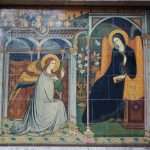Quite a few people have asked for my comments on Fr. Barron’s column on my book, Will Many Be Saved? What Vatican II Actually Teaches and Its Implications for the New Evangelization. I have shared these comments directly with Fr. Barron and we have agreed to discuss these issues more fully in the future. I am honored that Fr. Barron would pay attention to my book and appreciate the positive comments he made but I would like to offer a few reflections in response as well.
My main purpose in writing the book was to draw attention to the actual teaching of Lumen Gentium 16, both as to the possibility of being saved without hearing the Gospel with its precise requirements as contained in both the text of LG 16 and its footnote 2, and its estimation that “very often” these conditions aren’t fulfilled and therefore, for the sake of people in this situation of salvation, the Gospel must urgently be preached. I included the Rahner and Balthasar chapters because their impact has been such as to make it hard for people to give a hearing to the actual teaching of the Council.
Also, I am not speculating or offering any opinion in the book about the relative numbers of the saved and lost. I am not claiming to know that there are more people in hell than heaven, or vice versa. I am not claiming hell is “densely populated” although it very well may be. I think Fr. Barron’s column gives the impression by the way comments are juxtaposed that I am arguing for a position on how many are or will be in hell. I’m not. All I am claiming, with Vatican II, is that “very often” people find themselves in a perilous situation regarding salvation and we can’t presume they will be saved without coming to explicit faith, repentance and baptism. I also want to indicate that the teaching of LG 16 specifically locates itself in continuity with the scripture and doctrinal tradition of the Church and needs to be interpreted within the hermeneutic of continuity. I also want to point out that people don’t live in a neutral environment but are acted upon by the powerful effects of original and actual sin, the work of the devil who continually assaults us with “fiery darts” and is going about like a “roaring lion seeking to devour souls,” and the “world” characterized by a post-Christian, often aggressively hostile culture to Christ and the Church, which immensely influences people to take paths away from Christ and the Church and to “love the darkness rather than the light.”
Regarding the “broad” and “narrow” ways, I suppose there is some variability in the relative numbers of people on either way depending on whether a Christian culture forms the context of peoples’ lives or not. We are definitely entering into a post-Christian age as regards to Western culture and it appears to be getting more difficult to follow Christ, absent the societal and cultural support that once was more present. Drifting along with the culture today, as many people are, is drifting towards destruction.
My point is to reveal the urgency of evangelization—to invite people who may currently be on the broad way leading to destruction, to leave it and find the source of life, Christ and the Church. People who may be on the broad way don’t need to stay on it and I think more Catholics will be willing to take the risk to “give a reason” for the hope that is within them if they realize that something ultimate is really at stake – heaven or hell.
Regarding the footnote that references the particular section of Spe Salvi, I debated whether to include it or not, not wanting to detract from my primary purpose, nor be disrespectful in any way to Benedict, whom I admire greatly, and Spe Salvi, which I find inspiring in many ways. I finally decided that since the text would be well known among a number of theologically aware readers I needed to at least advert to it and make a low-key comment that indicated that there was at least an apparent or potential lack of harmony between LG 16 and these comments, and that some clarification was necessary. I didn’t intend these to be disrespectful or “to write them off” in any way, but simply to point out the very real need for clarification. I am concerned that Fr. Barron would compare what I intended as a low key and respectful remark pointing out the need to clarify the apparent discordance between Pope Benedict’s remark and the teaching of an Ecumenical Council, to those who dissent from a clearly authoritative doctrinal Encyclical like Humane Vitae. As many people know I’ve spent my whole adult life defending the authentic teaching of the Church and will continue to do so. That is the intention of my book. The quite unexpected and overwhelmingly positive endorsements from the highest level of Church leadership and very respected theologians I think indicates that Will Many Be Saved? succeeds in its purpose. The fact that only three months after publication it is already in its 4th printing is testimony to its reception.
Regarding Pope Benedict’s remarks in Spe Salvi, a number of things need to be said. There are clearly different levels of authority among different magisterial documents and even within the same document. The magisterium itself gives us ways of determining the levels of authority and their binding nature. Let me review some of these with a view towards applying them to the text in question. These guidelines (published in various documents by John Paul II, the CDF and placed in canon law) for determining how to interpret and locate the authority level of a document or within a document include, among others, the nature of the document – and certainly an Encyclical is of a high level. Nevertheless there are many different kinds of Encyclicals ranging from devotional, to theological meditations, commemorations of significant anniversaries or events, to quite precise and conscious efforts to teach doctrine or morals. Other criteria for determining the way in which a document is to be regarded are according to the intention of the author or the manner in which something is put, and the frequency with which it is said.
The text in question here seems to be clearly in the nature of what I would call “theological reflections,” rather than authoritative teaching. The way Benedict puts his reflections is quite unusual for an Encyclical. When he says: “For the great majority of people – we may suppose –…” I don’t think we can identify that as authoritative teaching either by the intent of the author or by the nature of the wording. I don’t think it’s credible to think that he intends to ignore or negate a teaching of an ecumenical council or the entire scriptural, theological or magisterial tradition within which LG 16 locates itself, by “supposing.” I do think clarification is needed and I don’t think that to quietly suggest that is “precisely analogous” to dissenting from Humanae Vitae. I think Fr. Barron is overstating what Benedict is intending to do in this text. I don’t think Pope Benedict is saying “at a very high level of authority,” that “we oughtn’t to hold that hell is densely populated.” If he wanted to rule out this as a possible theological position among Catholic theologians in good standing I don’t think he would do it by “supposing” and without much more detailed and considered reasoning, including explanation of how this could be considered to be in harmony with scripture, tradition and the teaching of LG 16 in Vatican II. Even though I am not arguing in my book for a densely populated hell, or making any claims about how many people are in heaven or hell, I don’t see how Catholic theologians aren’t free to argue that position, as many of our most illustrious theologians have. As Cardinal Dulles has pointed out, this was the prevailing theological opinion throughout the history of the Church up until the mid-twentieth century.
I am a great admirer of Fr. Barron’s work and am grateful for his leadership in contemporary evangelization. I think there is room for a good number of theological and pastoral positions regarding the fundamental reasons for evangelizing and the various ways in which the message can be shaped. I look forward to having these discussions with Fr. Barron and others in the future.
Ralph Martin, S.T.D.
Director of Graduate Theology Programs in the New Evangelization
Sacred Heart Major Seminary
Archdiocese of Detroit
President, Renewal Ministries





